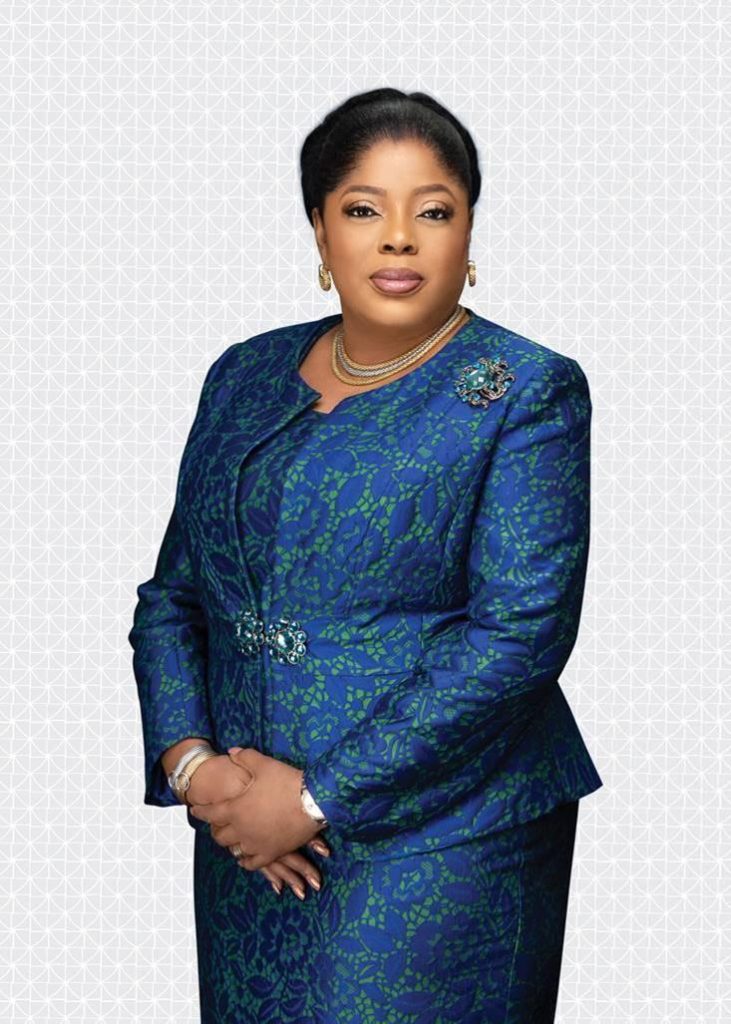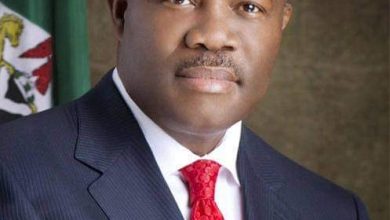Audacious Fidelity Bank set to claim top spot, overtakes peers.


Fidelity Bank has shown clearly where it is headed, the very top of its banking peers, what with its audacious moves in recent times from powering its way to a tier 1 bank, to spiking its balance and sheet size and now moving to take over Union Bank UK.
No doubt , Fidelity Bank, in less two years under its current CEO ,Nneka Onye-Ali ,has shown with facts and figures it does not belong tier2 slot . It is the only bank among its peers regarded systematically important bank by financial analysts in Nigeria . More concisely, the CBN grants a bank that has total assets of at least 5% and minimum total credits and deposit liabilities of 6% each of the industry in the last six months to be considered a SIB. Based on this simplified model of the CBN SIBs assessment criteria using total assets, total credits, and deposit liabilities, analysts’ calculation shows seven banks made the list as domestic systemically important banks in Nigeria.
But the success story of Fidelity did not take anyone unaware. Everybody, including the management and staff of the bank, industry watchers or even the banking public saw it coming; it was indeed a victory foretold. It all began with a stellar performance that caused Fitch Ratings to revisit the bank’s rating, with an upgrade in its long-term issuer default rating (IDR) from ‘B-‘ to ‘B’, an indication of the increased creditworthiness and excellent track record of the bank.
Notably, the rating agency also upgraded Fidelity Bank’s National Long-Term Rating to “(nga)” from “BBB+(nga),” placing the financial institution among the top tiers of banks in the country. Simply put, the B credit rating is given to a prospective borrower that is rated to have the ability to meet its financial commitments. According to Fitch, the upgrade recorded by Fidelity Bank was due to its improved business profile and resilient financial metrics. For better context of how the ratings are generated via the Viability Rating (VR), which is used to reflect the asset quality, reasonable capitalization, and liquidity of a bank. Little wonder obtaining credit by the bank was not such a big deal; recall that during that financial year, the bank demonstrate an acute ability to attract credit when it raised $400 million from the international debt market through a 5-year tenor Eurobond, with a 7.765% coupon in October 2021.
To achieve that, the lender was able to assemble a team comprising JP Morgan, Citigroup, and Afreximbank to manage the Eurobond jointly due to the bank’s reputation for world-class corporate governance and risk management, along with its highly experienced and top-quality management. This further demonstrates the bank’s prudent risk management practice as well as its impressive track record in the global markets having previously issued Eurobonds in 2013 and 2017.
This improved rating by Fitch was on the bank of a stellar full year performance in the 2021 financial year when its non-performing loans ratio dropped to 2.9% from 3.8% recorded in the previous year, one of the lowest NPL ratios in the Nigerian banking industry, according to analysts ; Fidelity has one of the best assets qualities with Stanbic Bank as the only challenger .In the period, the bank strengthened its capital adequacy ratio to 20.1%, while returns on average equity rose to 12.5%, showing how well the bank is utilizing shareholders fund in generating profit.

Fidelity Bank’s capital adequacy ratio was not only awe-inspiring, it was also the envy of their peers in the sector. As a matter of fact, this capital adequacy ratio at 20.1 per cent in 2021 gave the bank the opportunity to overtake ETI, First Bank, Wema, UBN, FCMB and Sterling with 14.8%, 17.4%, 15.45%, 14.6%, 16.88% and 14.8% respectively.

In terms of balance sheet components, Fidelity Bank grew its customer deposits by 19.2% to N2.02 trillion, while its loans and advances improved by 25.1% to N1.66 trillion. Its total asset appreciated by 19.3% to N3.29 trillion in the same period. It was a good year in which the bank ramped up its top and bottom line by growing gross earnings by 21.6% to N250.8 billion, while profit before tax surged by 35.7% to N38.1 billion.
Fidelity Bank, one of Nigeria’s most innovative banks by the above has , no doubt, proved it has what it takes to join the country’s top banks in the exclusive Tier-1 league.
In fact ,the above good run provided the basis for Proshare to list the bank a tier 1 bank. First, the recognition came from its strong Tier-1 Capital which was based on the ranking of banks with regard to the Weighted Proshare Bank Strenght Index of 2021.

In this case, many things including capital adequacy, the bank’s financial strength from the regulator’s point of view and other issues such as common stock, disclosed reserves, retain earnings and minority interests in equity of subsidiaries were also factors that did not escape the evaluators keen eyes for details .
In a nutshell, the Proshare model is based on an index that ranks Nigerian banks based on their aggregate points from CAR, NPL, LR, and Board’s Gender Mix (a proxy of Governance).Notably, these performance ratios were selected after querying half a dozen other variables namely: Assets Size (Ass), Gross Earnings (GRE), Net Interest Margin (NIM), Cost to Income Ratio (CIR), Digital Earnings, Loans to Deposit Ratio (LDR) Cost of Risk (CoR) and Ratio of Non-executive-to total directors. These are very critical in every financial evaluation
Clearly, this elevation is producing intense feeling of euphoria in the Fidelity family, and this is understandable for various reasons. In fact, the promotion could not have come at a better time, and the bank is soaking it in and working round the clock to justify the confidence reposed in it by regulators and assessors. But who would not, given the highly competitive environment that faces today’s banks, especially in this era?
This vote of confidence on Fidelity Bank by Proshare Nigeria Limited, an influential financial firm therefore promises to strengthen the bank and position it for the coming high-level impact that is already within touching distance. Expectedly, the ranking is generating a real buzz within and outside the financial sector. Luckily for the bank, the positive reactions are also reverberating and engendering hope and confidence among investors and the banking public.
Speaking recently on Fidelity Bank’s favourable outcomes in the banking industry, a top-ranking staff of the bank said: “This ranking is a demonstration of our resilience and doggedness as an institution given the very challenging macroeconomic environment which had a significant deleterious impact on business globally. It is also an affirmation of our commitment to delighting and creating value for our customers through a broad range of superior product offerings, best-in-class services and top-of-the-range technology’. He also expressed his appreciation to the bank’s numerous customers for making Fidelity their bank of choice.
HALF YEAR 2022: SUSTAINING INSPIRING MOMENTUM

The impressive growth trajectory of the bank observed in the 2021 full year, was maintained into the half year of 2022.
In the six months ending June 2022, the bank posted profit after tax of N23.307 billion for its 2022 half-year results, representing a growth of 20.72% year-on-year. This is at it made significant improvements across key performance indicators despite an inflationary year, where businesses and their consumers have had to deal with the rising cost of goods and services.
The bank improved gross earnings by 37.87% to N154.843 billion from N112.304 billion reported in 2021, driven by a 50% growth in net-interest income. This helped profit before tax to move up to N25.079 billion from N20.628 billion posted in 2021, representing a growth of 21.57%. Interest and similar income using the effective interest rate method rose by 48.45% from N 85.090 billion recorded in the first quarter (Q1) of 2021 to N 126.348 billion in the period under review.
Similarly, Net Interest Margin improved to 6.4% from 4.7% in 2021FY, due to a combination of improved yields on average earning assets and a decline in average funding cost. Average yields on earning assets increased by 211bps YoY to 11.5% while average funding cost declined by 84bps to 4.0% YoY, which resulted in 50.4% growth in net interest income to N75.6bn. The bank’s Profit before income tax for Q1’2022 inched slightly up by 1.9% from N10.134 billion in Q1 2021 to N10.324 billion.
At the stock market it continues to enjoy investors’ confidence based on its impressive performance trajectory and the growing future potentials . The current share price of Fidelity Bank Plc is NGN 3.40 ;it closed its last trading day on Friday, September 2, 2022 at N3.40 per share on the Nigerian Stock Exchange (NGX), recording a 2.1% gain over its previous closing price of 3.33 NGN. Fidelity began the year with a share price of 2.55 NGN and has since gained 33.3% on that price valuation, ranking it 22nd on the NGX in terms of year-to-date performance. Shareholders can be optimistic about Fidelity Bank knowing the stock has accrued 13% over the past four-week period—seventh best on NGX.
Fidelity Bank is the 10th most traded stock on the Nigerian Stock Exchange over the past three months (Jun 3 – Sep 2, 2022). It has traded a total volume of 341 million shares—in 5,967 deals—valued at NGN 1.08 billion over the period, with an average of 5.42 million traded shares per session. A volume high of 28.8 million was achieved on September 2nd, and a low of 680,710 on August 23rd, for the same period.
Market watchers hardly faults the bank’s growth trajectory given the visible moves made by the bank since the appointment of CEO,NnekaOnyeali-Ikpe; She had hinted on the bank’s strategic ambitions earlier in the 2021 financial year when she declared that the goal of the bank is to be named a tier-1 bank, with a timeline of four year.
“When I assumed the role of the CEO of Fidelity Bank at the beginning of the year, we announced our ambition to be recognized as a tier-one bank in another four years. A tall ambition, you may say, given the dynamic operating landscape but nevertheless achievable. We therefore listed seven focus areas critical to achieving this objective namely: Accelerated Growth, Innovation Drive, Brand Refresh, Performance Discipline, Digital Transformation, Service Excellence and Workforce Transformation,” she had said.
“While these are early days, we are happy to report that we are on-track to meeting our tier-one ambition as reflected in our financial results that have indicated significant growth on key reporting lines quarter-on- quarter,” she added.
Fair ambition, after all anyone can dream but the financial market got a rude shock with the announcement that Fidelity Bank has gotten approval by the Central Bank of Nigeria (CBN) to acquire 100 percent stake in Union Bank, UK. Such is the height of the bank’s ambition, to play only at the very top.
Commenting on the agreement, MrsNnekaOnyeali-Ikpe, the Managing Director/Chief Executive Officer, Fidelity Bank said, “This transaction aligns with our strategic plan of expanding our services touchpoints beyond the Nigerian market and providing straight-through services that meet and exceed the needs of our growing clients. The diverse bouquet and business model of union Bank UK offer a compelling synergy and we hope to build on the existing capacity to create a scalable and more sustaining service franchise that will support the wider ecosystem of our trade businesses and diaspora banking services.
In addition to all its exploits in the last few years, the bank also has the credit of successfully issuing the largest Tier-11 Local Bonds in Nigeria. This success in issuing 10 years N41.21 billion in fixed rate unsecured subordinated bond at 8.5 per cent coupon rate due in 2031, the impressive portfolio of landmark transactions structured by the bank and its other remarkable operations show the bank’s ability to successfully execute debt capital market transactions and other ancillary duties.
However, many people are excited about Fidelity’s commitment to creating employment by assisting owners of small businesses across the country. For example, last December, the bank announced its decision to issue fixed income securities with 10-year in support, growth and development of Small Medium Enterprises, SME’s, Retail Businesses as well as an upgrade in its technology infrastructure. At the end of the day, the bank successfully conducted the debt issuance under its registered N100 billion bond issuance scheme and drew attention to itself.
In his reaction to the significance and success of the bond issuance, Mustapha Chike-Obi, Fidelity Bank Chairman said that the bond issuance is a demonstration of the bank’s confidence in Nigeria’s debt market. “It all validates the continued investor confidence in our corporate strategy and aspirations, strong corporate governance structure and solid and stable executive management team with robust history of superior financial performance and returns”.
In the same vein, Fidelity Bank Chief Executive Officer, CEO, Mrs. Nneka Onyeali-Ikpe assured that the proceeds from the transaction would be utilized judiciously in support of growth in the issuer’s risk assets in SME and retail businesses. According to her, Fidelity’s giant strides especially under very harsh economic climate brought about by the Corona Virus pandemic and the fact that they stayed afloat in spite of the challenges is an indication of the stuff they are made. She added that all the hard work and efforts are all in line with the bank’s Tier-1 aspirations which is now a reality. “This successful bond issuance highlights the confidence in Fidelity brand, as well as our capability to expand our funding sources, and deliver innovative financial services to our esteemed customers”.
Fidelity Bank’s actions have been quick and decisive, market watchers wondering what next. What comes next is only a matter of conjecture but it does smell big; another ‘banger’ given the events of the last one and half year.
In many quarters, there is a belief that Fidelity Bank’s string of successes may have only just begun. Those who hold such view hinge their argument on a solid and visionary management team and a highly motivated workforce that are willing to travel the extra mile to sustain these achievements.
Steering the leadership wheel of Fidelity is Mrs. Nneka Onyeali-Ikpe, a woman of uncommon financial and management skills who knows where she is headed. Since assuming office as the bank’s first female CEO on January 1, 2021, she has left no one in doubt about her vision and mission. Above all, she is also very conscious of the verdict of history, so she is not leaving any stone unturned in her resolve to take Fidelity to the top. Already, she is religiously following her seven-point agenda which include among other things, brand building and architecture, talent development and transformation, product and service delivery, agility and performance discipline, digital transformation and regulatory compliance.
Fidelity Bank, an emerging banking superpower and a financial powerhouse is ready to take on the world. They are also prepared to make another record and even create upset in the banking world. With over 5.7 million customers who are serviced across its 250 business offices and other digital banking channels, it is now clear that even the sky will not be a limit for this bank of the moment.
One undeniable fact is that Fidelity Bank’s service delivery, values and innovation are improving by leaps and bounds and this is clearly the face of the future. In the coming years, there is every likelihood that the bank will sustain the momentum as it continues to work harder in the race for relevance dominance and more recognitions. Before now, Fidelity had actually showed perceptive industry observers that it was the bank to watch.
Fidelity Bank is a full-fledged commercial bank operating in Nigeria with over 6.5 million customers and 250 business offices and digital banking channels across the country. The bank was recently recognized as the Best SME Bank Nigeria 2022 by the Global Banking & Finance Awards. It has also won awards for the “Fastest Growing Bank” and “MSME & Entrepreneurship Financing Bank of the Year” at the 2021 BusinessDay Banks and Other Financial Institutions (BAFI) Awards, a testament of Fidelity Bank’s support for business growth and impressive track records over the years.
.






